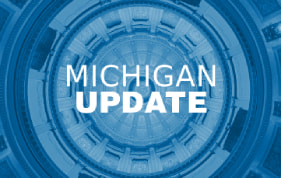This webinar was held on February 18, 2020.
On February 6, the Centers for Medicare & Medicaid Services (CMS) issued Part II of the Advance Notice of Methodological Changes for Calendar Year (CY) 2021 which includes proposed updates to Medicare Advantage (MA) payment rates. In a departure from previous years, the agency did not release a separate Call Letter which typically includes Part C and Part D policy guidance and bidding instructions. Instead, the agency released a proposed rule which includes proposed policy and technical changes, most of which are scheduled to go into effect in the 2022 plan year. CMS also issued separate bidding instructions for plans as they prepare their bids for CY2021.
During this webinar, an HMA team of Medicare experts including Jonathan Blum, Eric Hammelman, Julie Faulhaber, and Narda Ipakchi presented an overview of the payment rate updates and proposed policy changes included in the Advance Notice and Proposed Rule. They provided interested stakeholders with an overview and analysis of the proposed changes as well as what these changes mean for Medicare Advantage plans’ existing strategies and opportunities.
Learning Objectives
- Understand what the expected 2021 rate increase for Medicaid Advantage plans means for continued industry growth and financial performance.
- Learn about updates to the Medicare Advantage Star Ratings system, including proposals to increase measure weights for patient experience and complaints.
- Learn about the proposed changes to network adequacy requirements and how the agency is promoting further use of telehealth among plans.
- Understand CMS’ efforts to implement requirements that expand Medicare Advantage coverage to beneficiaries with ESRD.
HMA Speakers
Jon Blum, Managing Principal, Washington, DC
Eric Hammelman, Principal, Chicago
Narda Ipakchi, Senior Consultant, Washington, DC
Julie Faulhaber, Principal, Chicago




